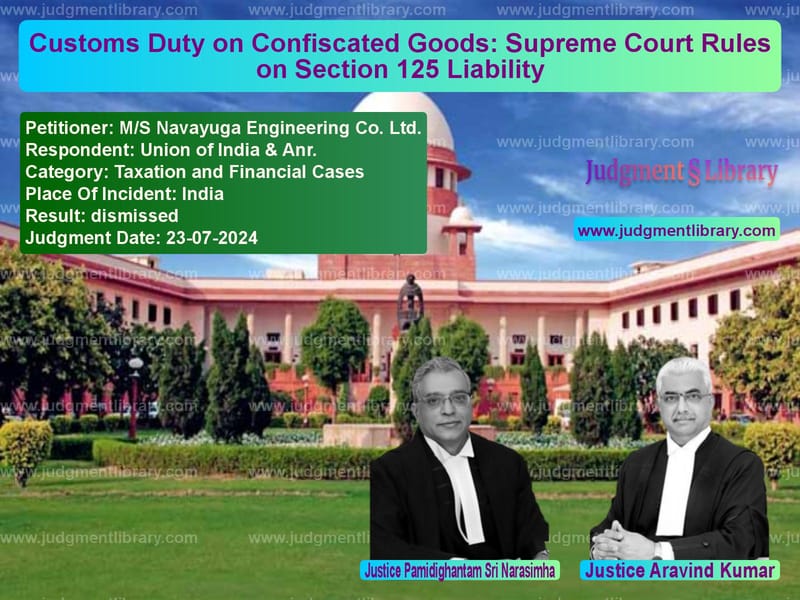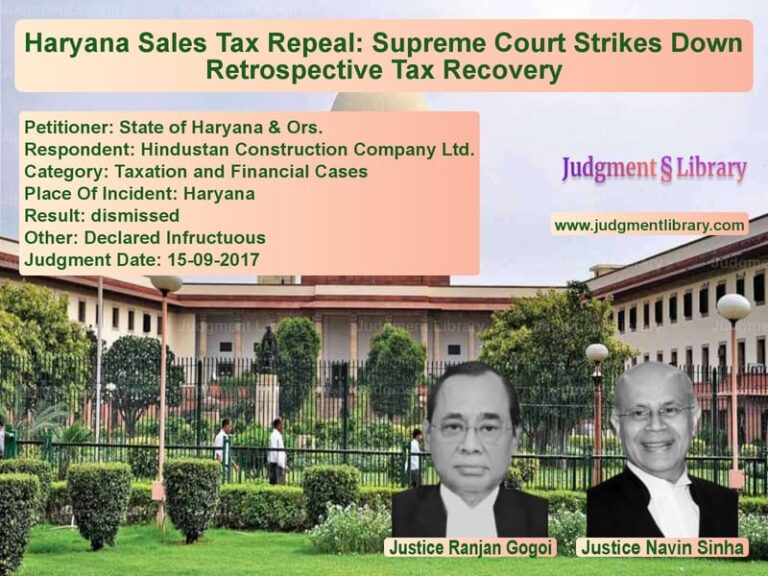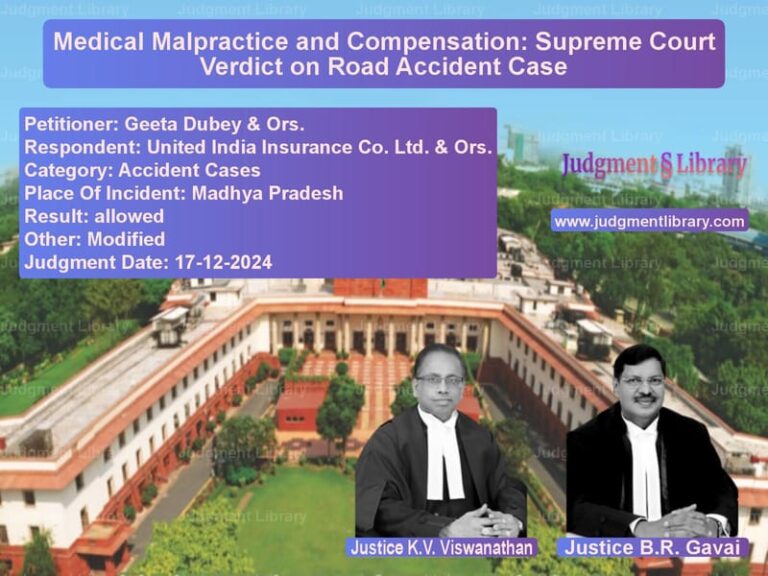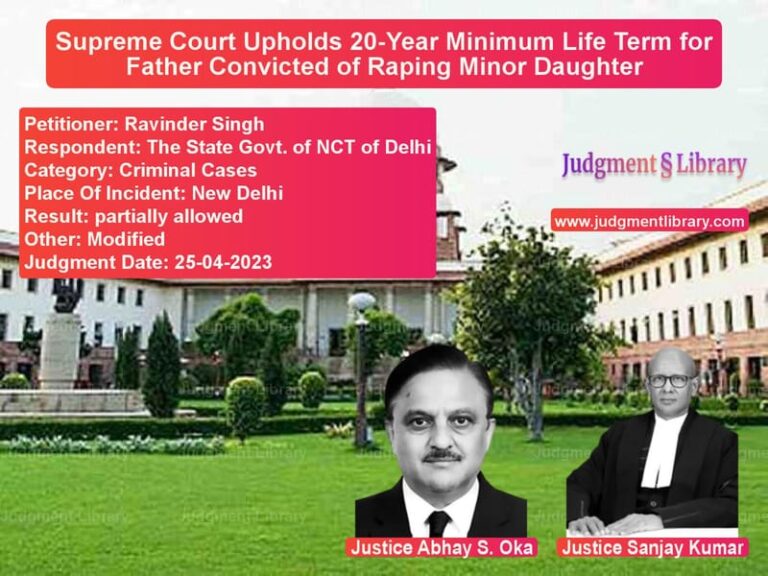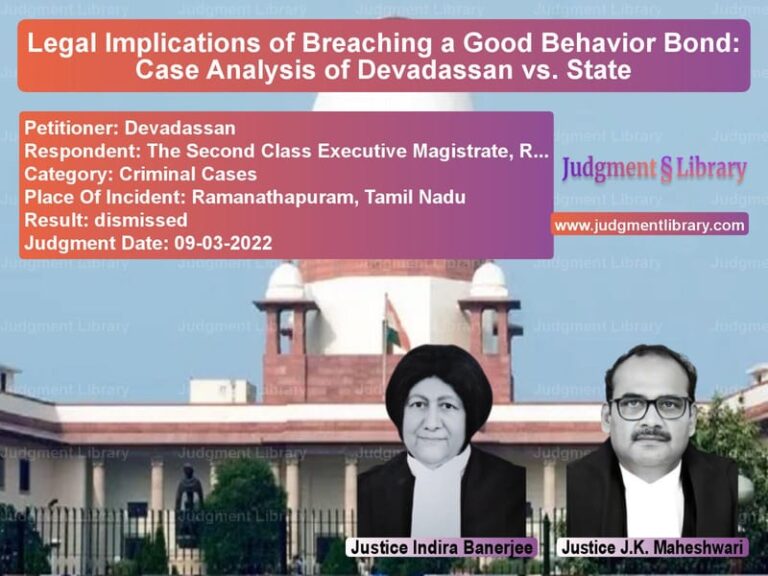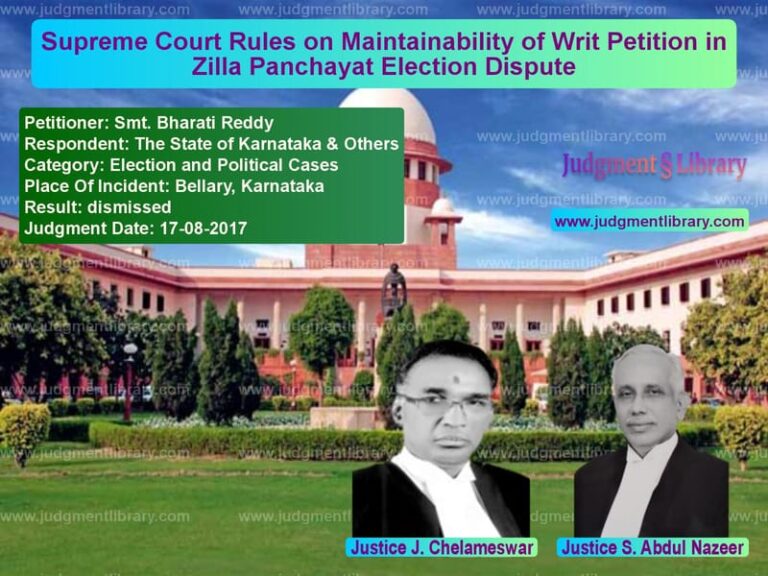Customs Duty on Confiscated Goods: Supreme Court Rules on Section 125 Liability
The Supreme Court of India recently delivered a crucial judgment in the case of M/S Navayuga Engineering Co. Ltd. vs. Union of India & Anr., clarifying the legal position on the payment of customs duty and interest when confiscated goods are redeemed after payment of a fine under Section 125 of the Customs Act, 1962.
Background of the Case
The appellant, Navayuga Engineering Co. Ltd., had availed customs duty exemptions on self-propelled hydraulic piling rigs imported between 2003 and 2007. These exemptions were granted under a notification that required the goods to be exclusively used for infrastructure projects. However, investigations revealed that the company had allegedly violated these conditions. The customs department initiated confiscation proceedings, demanding duty and interest under Section 125 of the Customs Act.
Following an adverse decision by the authorities, the appellant approached the Supreme Court, challenging the requirement to pay customs duty and interest when confiscated goods are redeemed.
Key Legal Issues
- Whether there is a liability to pay customs duty when confiscated goods are redeemed after payment of a fine under Section 125?
- Whether the liability to pay such duty includes the liability to pay interest on delayed payment under Section 28AB?
- What is the correct interpretation of the Supreme Court’s previous ruling in the Jagdish Cancer & Research Centre case?
Arguments by the Petitioner (Navayuga Engineering Co. Ltd.)
- The appellant had voluntarily deposited Rs. 16.29 crore as duty and Rs. 1.84 crore as interest to avoid litigation.
- It argued that the customs duty liability did not arise under Section 28 of the Customs Act but only under Section 125, which does not prescribe interest.
- The Settlement Commission, while waiving penalties, ruled that interest under Section 28AB was not applicable in confiscation cases.
- The appellant contended that the decision in the Jagdish Cancer case established that duty under Section 125 is distinct from Section 28 obligations.
Arguments by the Respondents (Union of India & Customs Department)
- The customs department argued that once an importer opts to redeem confiscated goods under Section 125, duty liability arises, and this duty must be assessed under Section 28.
- Since Section 28 applies, the obligation to pay interest under Section 28AB follows automatically.
- The High Court correctly ruled that customs duty cannot be determined in isolation and must follow the assessment and procedural requirements under Section 28.
Supreme Court’s Judgment
The Supreme Court upheld the High Court’s ruling and clarified key legal principles:
- Duty Liability Under Section 125: The Court ruled that when confiscated goods are redeemed after payment of a fine under Section 125, the importer remains liable to pay customs duty.
- Application of Section 28: The duty liability under Section 125 must be assessed and determined under Section 28, as Section 125 does not provide an independent method of duty computation.
- Interest Under Section 28AB: Since duty is assessed under Section 28, the interest liability under Section 28AB is automatically attracted.
- Distinguishing Jagdish Cancer Case: The Court clarified that Jagdish Cancer does not establish that duty liability under Section 125 is independent of Section 28. Instead, the case only held that a separate notice under Section 28 is not necessary when duty liability arises in confiscation proceedings.
The Court ruled:
“Once Section 28 applies for determination of duty obligation arising under Section 125(2), the interest on delayed payment of duty arises under Section 28AB. The said provision obligates payment of interest in addition to the duty.”
Impact of the Judgment
- Clarification on Duty in Confiscation Cases: The ruling confirms that customs duty is payable even when confiscated goods are redeemed.
- Interest Liability Confirmed: The Court’s interpretation ensures that interest must be paid in cases where duty is assessed under Section 28.
- Uniformity in Taxation Law: The judgment reinforces the principle that customs duty cannot be assessed arbitrarily and must follow statutory procedures.
Conclusion
The Supreme Court’s ruling in this case provides much-needed clarity on customs duty obligations when confiscated goods are redeemed. By holding that duty assessment must be done under Section 28 and that interest under Section 28AB applies, the Court ensures a consistent approach to taxation in confiscation proceedings.
Petitioner Name: M/S Navayuga Engineering Co. Ltd..Respondent Name: Union of India & Anr..Judgment By: Justice Pamidighantam Sri Narasimha, Justice Aravind Kumar.Place Of Incident: India.Judgment Date: 23-07-2024.
Don’t miss out on the full details! Download the complete judgment in PDF format below and gain valuable insights instantly!
Download Judgment: ms-navayuga-enginee-vs-union-of-india-&-anr-supreme-court-of-india-judgment-dated-23-07-2024.pdf
Directly Download Judgment: Directly download this Judgment
See all petitions in Tax Evasion Cases
See all petitions in Customs and Excise
See all petitions in Banking Regulations
See all petitions in Judgment by P.S. Narasimha
See all petitions in Judgment by Aravind Kumar
See all petitions in dismissed
See all petitions in supreme court of India judgments July 2024
See all petitions in 2024 judgments
See all posts in Taxation and Financial Cases Category
See all allowed petitions in Taxation and Financial Cases Category
See all Dismissed petitions in Taxation and Financial Cases Category
See all partially allowed petitions in Taxation and Financial Cases Category

